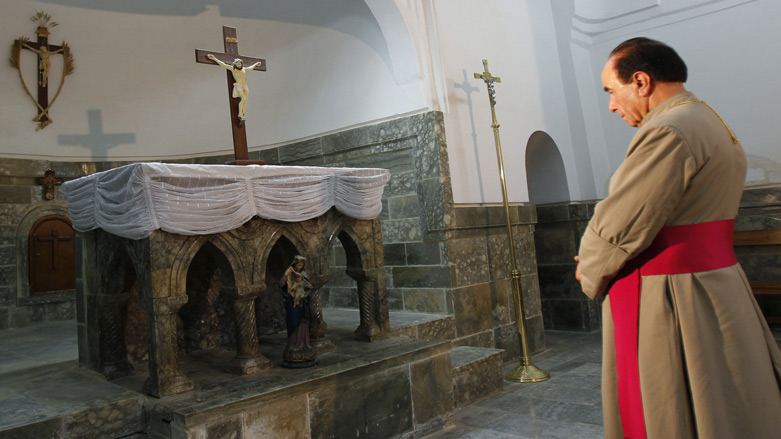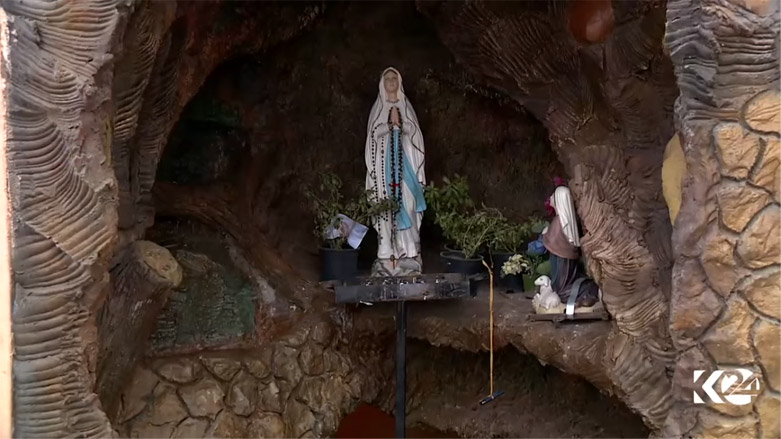Lack of security in Iraq pushes remaining Christians abroad

ERBIL, Kurdistan Region (Kurdistan24) – The number of Christians in Iraq and the Kurdistan Region is on the decline, a Christian bishop warned on Wednesday.
The Christian population in Iraq and the Kurdistan Region had largely decreased since 2003 as more of them migrate abroad due to security risks in the country.
Slewa Aziz Rassam, the Christian Bishop of Maryam Azra in Kirkuk told Kurdistan24 the number of Christian families in Kirkuk dropped significantly in the past 13 years from 1,200 families to 500.
Rassam, whose son already fled to Europe, stated the threat of the Islamic State (IS) forced Christians to leave the country.
“Christian migration abroad continues because we do not have security; our people do not seek violence, but to live,” he said.
The Bishop noted the number began to dramatically fall after the emergence of IS in Iraq in June 2014.
According to the spokesperson of Kirkuk (Asayish) Security Forces Fahad Hama Ali, over 40 Christian citizens had been killed and kidnapped since 2003.
“In the past, we arrested many groups who had hands in murdering and kidnapping Christians from Kirkuk, and we continue to catch the remaining groups,” Ali told Kurdistan24.
He mentioned the Asayish had arrested two kinds of militant groups; one was murdering Christians while the other group was kidnapping them for ransom.
Khalid Jamal Talia, the General Director of Christian Affairs of the Kurdistan Regional Government (KRG) Ministry of Endowment and Religious Affairs, told Kurdistan24 in 2015 there was an estimated 320,000 Christians in the Region who fled from other parts of Iraq following IS’ emergence.
“Now, we estimate to have about 200,000 to 250,000 Christians in Kurdistan,” Talia revealed.
According to him, Christian migration abroad had decreased in the Kurdistan Region from eight families a day to two families now.
“Christians usually take a document from Churches before moving overseas to prove they are Christian,” Talia explained.
“This is one of the ways we track whether the migration increased or decreased,” he concluded.
Editing by Karzan Sulaivany
(Additional reporting by Soran Kamaran)

